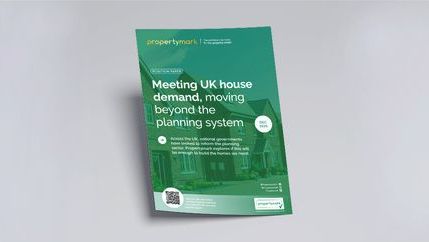
Overhaul of private renting
Tenant protections will see significant change through the Housing (Scotland) Bill, including the introduction of an ’Awaab’s law’" equivalent, requiring landlords to swiftly address serious hazards such as damp and mould. Additionally, the Bill introduces longer-term rent controls and removes existing caps on council tax premiums for second homes and long-term empty properties.
Propertymark remains vigilant in ensuring these measures balance tenant protection with the need for a vibrant private rental sector. We continue to engage with the housing minister and Scottish Government officials, providing feedback on amendments that we support and on issues being considered.
Overall, while we applaud the Scottish Government’s comprehensive approach to affordable housing and tenant protections, Propertymark will continue to advocate for further policy reforms necessary to create a balanced, sustainable, and accessible housing market across Scotland.
Action to increase housing supply
Central to the new housing strategy is the ambitious commitment to deliver 110,000 affordable homes by 2032, backed by an investment package totalling approximately £20 billion. This major initiative aims to significantly ease housing supply constraints and support between 12,000 and 14,000 jobs annually, reinforcing the importance of housing in driving economic growth.
Immediate plans for 2025-26 include delivering over 8,000 affordable homes through social rent, mid-market rent, and low-cost home ownership schemes. There is a particular emphasis on increasing the availability of family-sized properties, aligning with our members’ experiences of high demand in this category.
We are encouraged by the Scottish Government’s steps to address stalled development sites, potentially unlocking the construction of up to 20,000 homes, which aligns with Propertymark’s longstanding call for measures to boost housing developments and ensure more efficient land use.
Affordable and accessible homes
Further investment in adaptations for disabled tenants is also welcome news. The government's commitment to more than double the adaptations budget to almost £21 million will help around 8,500 households, allowing more tenants to live independently and comfortably in their homes.
Addressing homelessness remains a priority, with £4 million allocated to prevention pilots in 2025-26, plus an additional £1 million directed towards housing associations and third-sector organisations to uphold tenants' rights and housing stability.
Propertymark also recognises the importance of targeted support for rural and island facing unique housing challenges. We support the continuation of the Rural and Island Housing Fund until March 2028, ensuring these communities benefit from tailored housing initiatives.







